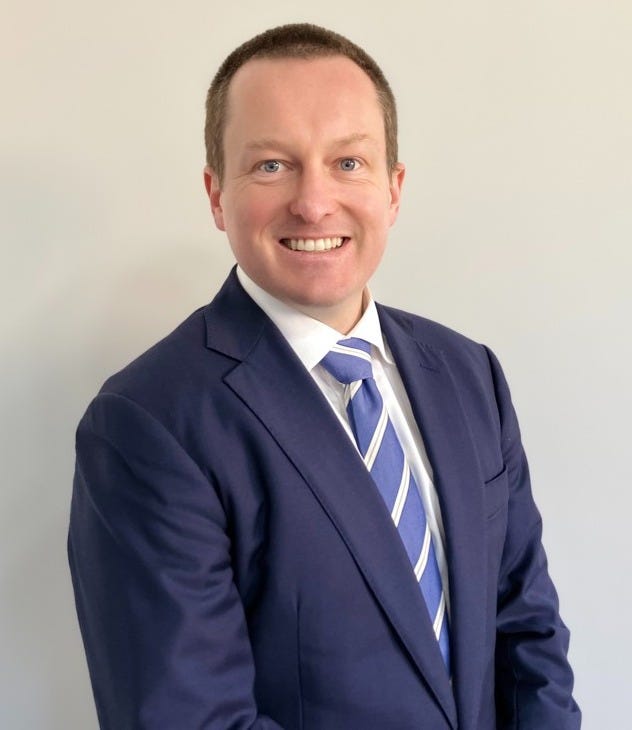Instead of Pointing the Finger, We Can...
Creating a mindset and culture of each person looking inward first and foremost
During a time of organizational struggle with his co-workers, a leader mentioned that it was a time to “Point this way (the thumb towards ourselves), not this way (the finger towards each other).”
Nikola Jokic is a 3-time NBA Most Valuable Player and is normally an understated professional when speaking publicly. Yet he had a point he was willing to verbalize.
Jokic went on to briefly mention all the requirements for success that each of them, himself included, could be doing better, to stimulate progress and desirable outcomes.
There can be a natural human tendency to blame others and in certain situations that may be an accurate assessment of the reality yet it may not be helpful for morale, the organizational dynamic or help correct problems as a catalyst for improvement.
In the press conference in which Jokic gestured that he and his teammates should point the thumb at themselves instead of fingers at each other, he was saying that only by doing that and each person choosing to work towards what they can provide, that the organization, as a collective, would improve.
That realization and directive however isn’t emotionally and psychologically easy for everybody. There is a lot going on in your minds.
“When we self-judge, we think we are mortally hurting ourselves, which makes it feel like an act of desperation,” says Michelle Dees, MD, a board-certified psychiatrist at Luxury Psychiatry Clinic.
“When necessary, inadequacies reveal themselves in front of us, quite often our brain tends to employ its built-in defense mechanisms, which push us into self-justification rather than acceptance.”
This can lead to moving away instead of towards what the moment most needs.
“Irrespective of the context, this default attitude of interpreting situations makes it possible to evade discomforting personal accountability and self-growth,” she says. “
“It is always easier to allocate blame outside (of ourselves).”
“Admitting one's own fault, when it truly is the case, is very difficult because we tend to make the decision all about choosing between admitting the fault or shifting the blame to someone else,” says Iqbal Ahmad, founder and CEO at the Britannia School of Academics.
“In reality, the choice is between admitting one's fault to maintain integrity and good rapport or shifting the fault and sacrificing one’s integrity and rapport in the process.”
What communicating to ourselves is needed is difficult because of what is required.
“It is hard to point the thumb at ourselves since it calls for humility and accepting that perhaps we have erred,” says Oliver Morrisey, an inheritance lawyer and the founder and director at Empower Wills & Estate Lawyers.
“And in professional settings, especially where precision and trust are of essence, the acknowledgment of mistakes feels like the exposure of weakness.”
Moving into what doesn’t feel like we want it to feel like can make choosing progress undesirable.
“Pointing the thumb at ourselves forces us to confront our flaws, take responsibility, and deal with the discomfort of self-accountability,” says Luke Beerman, the CEO at Freedom Fence FL, a fence installation company. “That’s not an easy pill to swallow because it challenges our ego and self-preservation instincts.”

The approach of honestly looking inward to determine if there is anything else that we are not doing — or doing at a high level — that is part of our responsibility, can be a helpful approach.
“The more we begin to take responsibility for our actions and decisions, the more we are able to foster trust with other parties, a notion rooted in reliability,” Dees says.
“It creates a window for us to pursue giant strides in our personal and professional lives, for it’s only when we properly identify our mistakes that we can actually work on fixing them.”
We learn and become more skilled and trusted by choosing this harder road.
“Through self-accountability, we develop better analytical and problem-solving skills while promoting more honest relationships that carry deeper meaning.”
At times, we may be the last to grasp the understanding of reality.
“If we truly are at fault, then everyone in our team probably already knows about it or will know soon enough,” Ahmad says.
“The wisest approach as a leader is to take this as an opportunity to build rapport and trust by admitting fault and taking — and promising — corrective actions to right the wrong.
“In other words, we need to prioritize long-term gains over a short-term relief of shifting the blame to others, at the cost of wasting this opportunity to emerge as a true and strong leader.”
Trust is relationship capital and career and business capital. Looking at ourselves first and what we should be doing is a driver of being able to establish, grow or regain it.
“It establishes trust and respect because it shows clients, colleagues and employees that we are more interested in accountability and solutions than in being defensive,” Morrisey says. “To me, taking responsibility for an error is the greatest way to convince clients that I am there for their best interest and always seeking to improve.”
Pointing the thumb additionally “sharpens self-awareness and fuels personal growth,” Beerman says. “It's not about blame, it's about control. When we take responsibility, we gain the power to influence outcomes.”

It can be challenging and taxing to get to the point where we can effectively communicate to ourselves to help create a fertile mindset in uncomfortable, difficult situations and problem solving for the betterment of the mission.
“The first steps involve changing our perspective, towards self-accountability from being a task to a strength,” Dees says.
This, she adds, it is beneficial for “reminding us that challenge should be accompanied by honesty, for true growth comes from trying to solve issues that make us feel uncomfortable rather than telling ourselves why they are impossible.
“When we view accountability as a chance to gain new insights, we can develop the skills necessary to address shortcomings with a problem-solving approach.”
There is a concise mantra that summarizes what thinking about how we can be a bigger part of the change we want to see and can be.
"Growth over ego,” Beerman asserts. “If I own it, I can fix it."
"This is a moment to grow stronger,” Morrisey says. “Owning my part demonstrates character, earns trust and helps me build better outcomes moving forward."
The odds increase that we will be positively noticed and respected in the process.
“Pointing the thumb at ourselves demonstrates a commendable level of commitment and ownership and will help us build great rapport and trust with our colleagues and subordinates,” Ahmad says.
“Even if we believe that we were only partly responsible for the error or adverse outcomes, taking one for the team will help us earn their respect,” he recommends.
“If we do believe that colleagues and subordinates have to take their part of the blame, leave this discussion to be held in private when they are more likely to rally up behind you to ‘right’ the wrong, as we would have saved them from possible embarrassment in front of the entire crew,” Ahmad says.
To advertise, sponsor a section of the newsletter or discuss your affiliate marketing program, contact CI.







